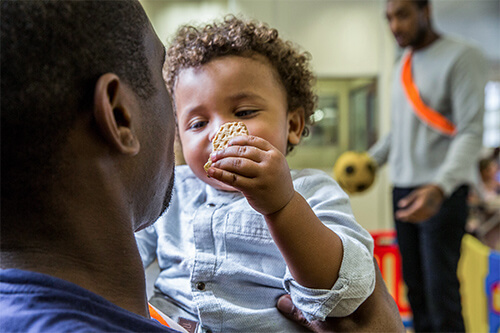Growing up with a parent in prison is a reality that affects many children across the country and the world. For me, it wasn’t just a matter of missing someone; it was a constant reminder of a home that was broken, a piece of my family that was out of reach. The emotional and psychological impact of having a parent incarcerated is far-reaching, often touching almost every part of a child’s life, from school to the way we see ourselves in the world.
At school, it’s difficult to explain why my home life was different from others, especially in my younger years when both my parents were away. I didn’t know how to talk about my parents being in prison and even when you want to there’s never really anybody you feel comfortable opening up too. Although growing up in London its not a unique situation, yet it’s something people rarely discuss in day to day life. While classmates would think of family time as holidays or outings instead i would think about prison trips and as much as i would enjoy spending the time seeing them it’s not the same type of memory.
Academically, the impact was profound. While teachers may notice an issue it’s not a topic that they could really help with. Although I will always appreciate the few who really did try to reach out and be accommodating. It wasn’t just the emotional toll of missing a parent, but the financial strain that often accompanies it. There was help, however limited it was, for example free school meals. It’s a constant worry that plays on the back of your mind. Are they ok? When would i see them next? Will I ever have what the other kids have? There where days when I sat in class, my mind racing with thoughts of what was happening at home, the complex family arrangements or the vague sense of unease about the future.
The lack of support at school was glaring. Teachers didn’t know how to address the issue or how to help. I never felt comfortable reaching out to anyone because I didn’t want to be seen as different. There were no counsellors or real resources available for students in my situation. In hindsight, I realise how much that could have helped. Just having a space where I could talk openly about my feelings without judgment may have made a world of difference. Instead, it comes down to distracting yourself with your surroundings. Whether that be sports, clubs or anything else I could get my hands on, yet I never felt the motivation or support to follow them through to the end that only a parent can really provide.
Support systems outside of school were equally scarce. Extended family was often involved, but not always in the way I needed. The emotional gap left by an incarcerated parent can’t be filled just by extra time with relatives, though it helps. What was missing was a deeper understanding of how to help children process the trauma. Support groups for kids with incarcerated parents could have offered not just a sense of solidarity, but practical advice for coping with the anxiety and isolation.
What could have been done better? Well, for starters, schools need to offer more resources for children going through situations like mine. A counsellor trained to handle issues related to parental incarceration could have made a huge difference. Kids need someone they can talk to, someone who understands the complexities of their emotions and provides a judgement-free zone. More community programs or youth groups aimed at helping children of incarcerated parents could also help create a sense of belonging, removing the stigma and providing emotional outlets. Thankfully I was able to have frequent communication with my parents, a “blessing” we do not all share. A line of communication that children could use to reach out to their loved ones would also help to bridge the gap and keep them grounded. One they could use at will instead of having to wait by the phone for a call that you don’t even know when is coming.
More than anything, children need to feel that they aren’t carrying the weight of their parent’s mistakes alone. When you grow up in this environment, it’s easy to internalise feelings of shame or confusion. But with proper support, we can begin to heal and move forward with confidence. As a society, it’s crucial that we recognise the struggles of children in these situations and provide the help and resources they need to thrive.
Looking back, I realise that with the right guidance and understanding, my journey could have been a lot less isolating. More than just academic success, what I needed most was emotional support – the kind that allowed me to understand that it wasn’t my fault, that I wasn’t destined to repeat history, and that there was hope for a different future.

